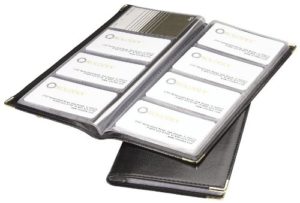Business networking is the process of establishing a mutually beneficial relationship with other business people and potential clients and/or customers. The primary purpose of business networking is to tell others about your business and hopefully turn them into customers.
~ Susan Ward
There are several social networks online, like Facebook and Twitter. However, it might be more practical to do business networking offline, especially for small businesses. Finding out where you can do this is as simple as typing “where to find local business networking opportunities” into Google. You can also check with local municipality offices, Employment Insurance offices, and even local colleges. All of these may have events or workshops you can attend. Some may be free, others may charge a small token which helps them pay for the meeting room, coffee, etc.
A couple of places online that could come in handy are meetup.com and alignable.com.
For meetup.com you would have to do a search for what is close to you. I was in Edmonton, Alberta, so a quick search of meetup.com pulled up the Edmonton Business Network. Its description describes it as:
Each month we host business networking events that give you an opportunity to meet top local business owners, entrepreneurs and business professionals. We also hold inexpensive, high quality seminars and training sessions where you can learn new tactics, tools and techniques. Topics address just about every aspect of owning and growing a business: online marketing, personal development, social media, sales, networking, raising capital, crowd sourcing, branding, search engine optimization, web design and more. Group membership is free.
Alignable describes itself as:
With more than 3 million members and millions of connections across more than 30,000 local communities, Alignable is an online network where small business owners across North America drive leads and prospects, generate referrals, land new business, build trusted relationships, and share great advice.
Once you sign up it’s easy to connect with other small business owners in your town, city or area.
Of course, if you’re new to business, you can learn a lot of information. The first time I went to one of these was sponsored by Employment Insurance in 2003. We met for 6-8 weeks. My little business was already making me a steady income, but I didn’t have a clue how to run a business. This gave me the opportunity to learn about things like registering a business, and deciding what kind of business I wanted to register. It taught me about business taxes and bookkeeping, working with accountants — what I could claim and what I couldn’t — and gave a general overview of marketing.

To attend these meetings you always need to make sure you’re carrying some business cards with you and a Rolodex business card book. As you meet people other participants you can exchange business cards. You can jot notes on the back of them, most of the time, and then slide them into your wallet. You can use them to call some of these people later. Even if it’s likely they won’t become customers, they can certainly save you in other ways.
If your business picks up and you need to hire someone, call some of the people you met and ask them if they know of anyone. There’s a good chance they do. Not only could you get a good recommendation for someone to call, you’ve renewed your acquaintance and your name is once again, fresh in his or her mind.
What if you need work done to your home to accommodate the business? Call some of the people in the network and ask for advice on who to hire. Or, for that matter, there might have been a contractor in your group.
You might feel like you’re alone, but with a network you’ll discover you have people. It’s just not possible to build a business without people. Soon you’ll start to learn the power of relationships and communication. It will make it so much easier when you’re looking for suppliers, vendors, employees, tax advice and almost anything else you might need.
Likewise, by staying in contact, there’s a good chance your name and business will get referred to people they know who could use what you’re selling. You’ll discover that having a professional network is much different than asking your friends and family for advice, and especially so, if they have never operated a business.
